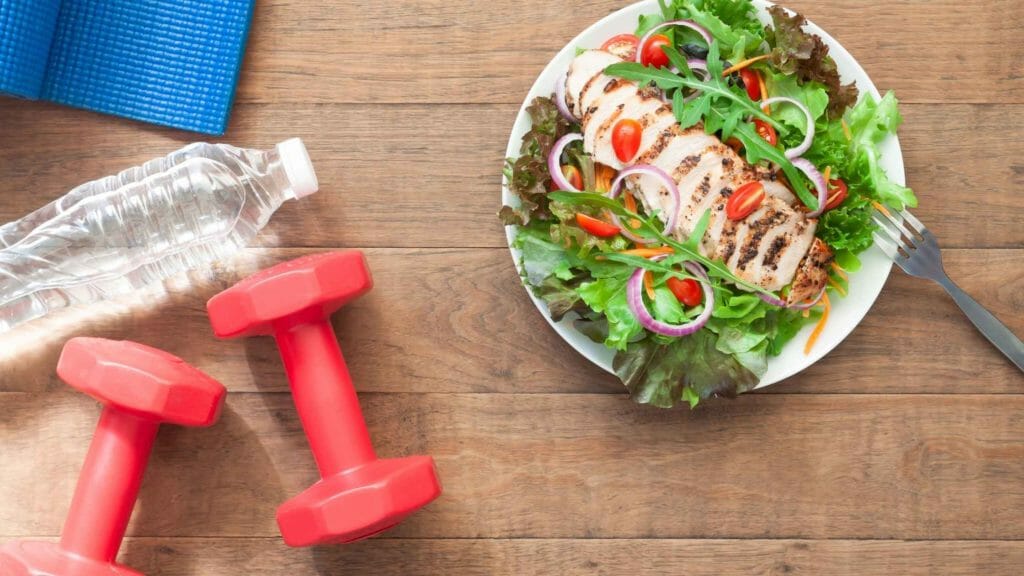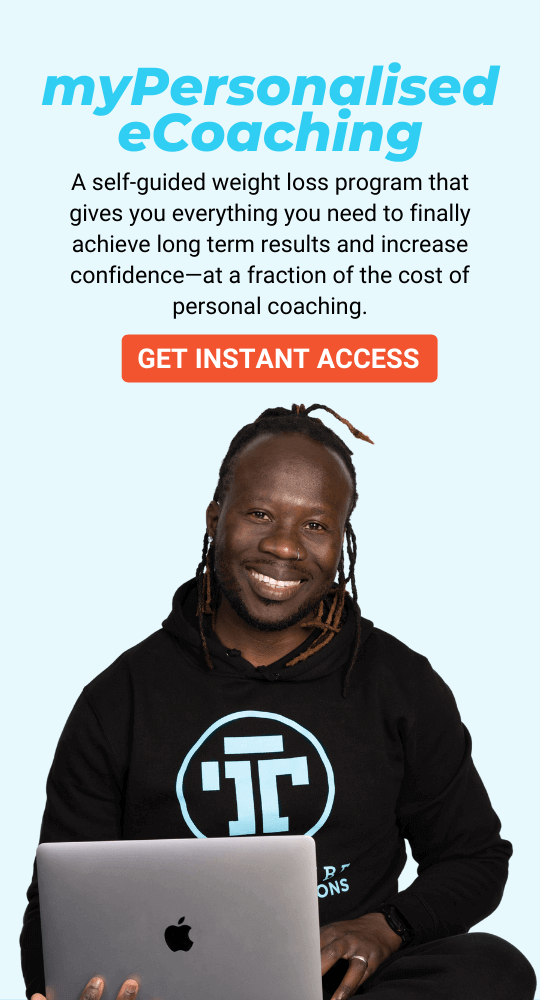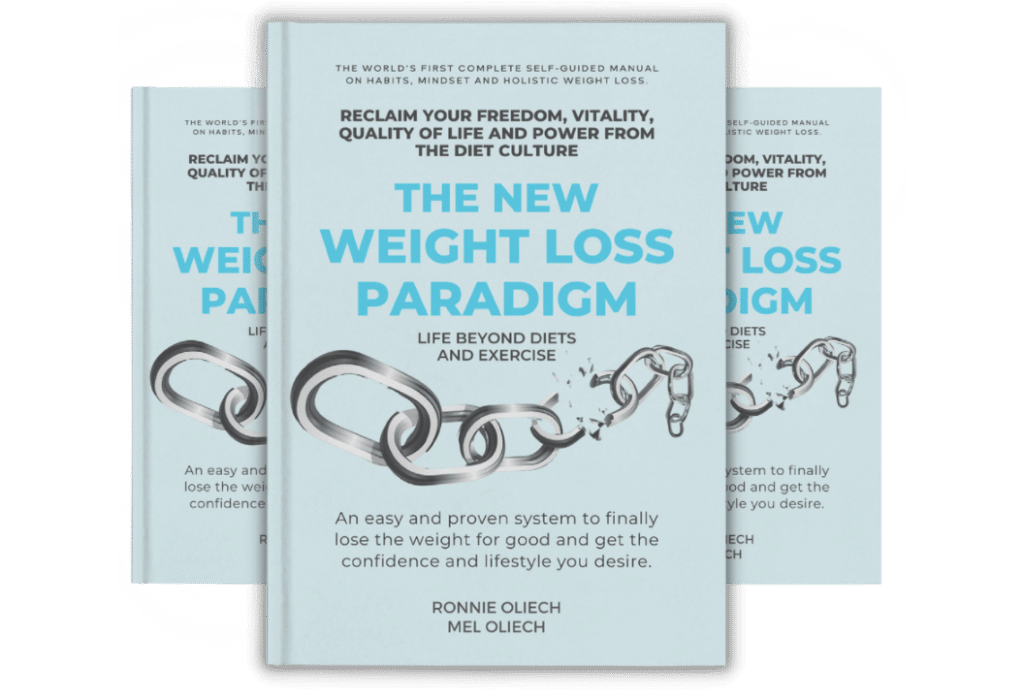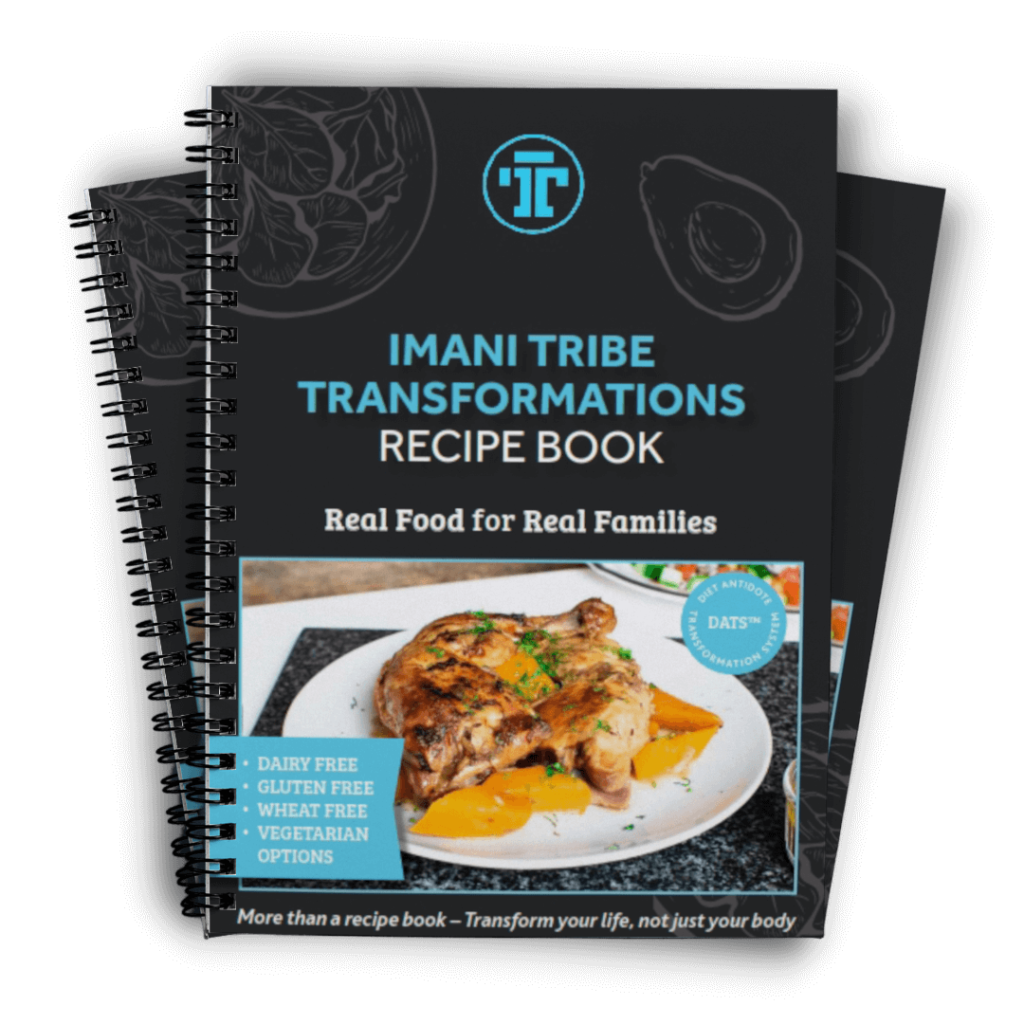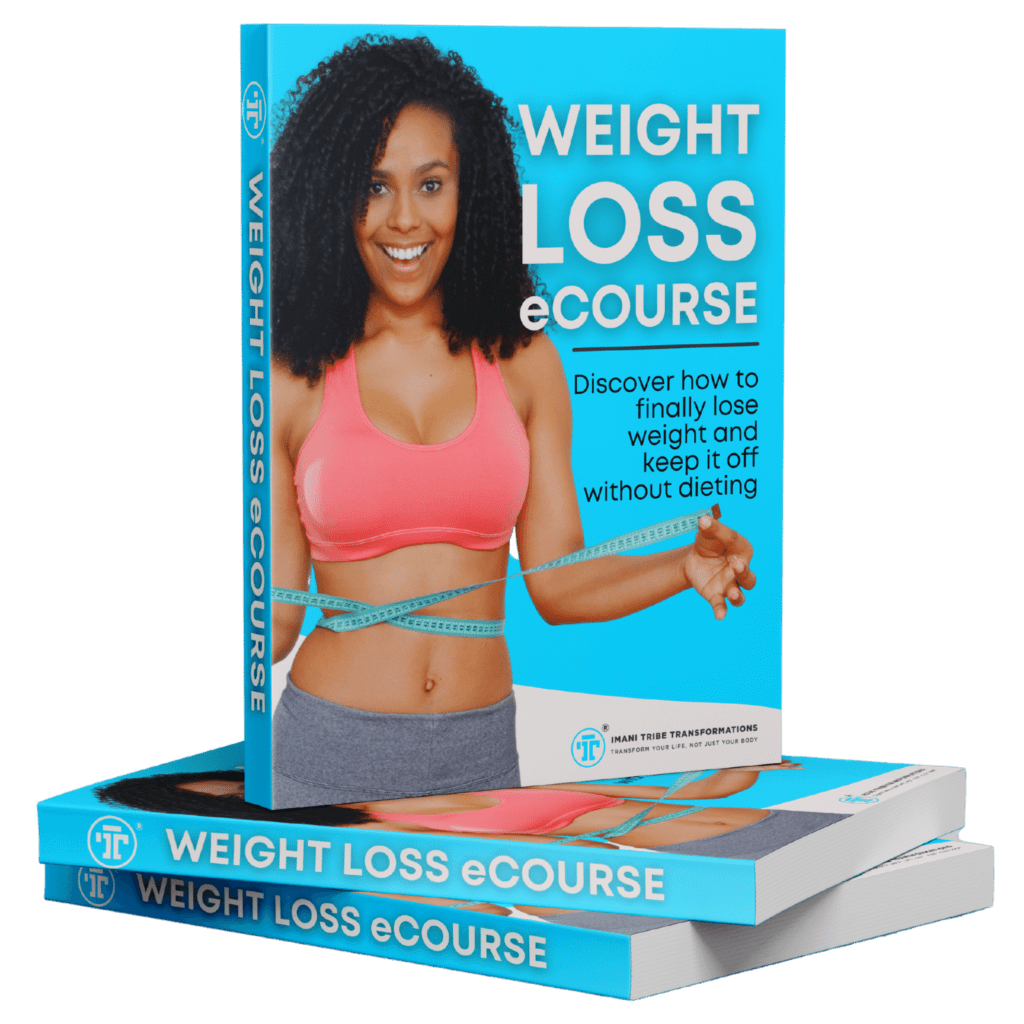If you’re reading this, chances are you’re not comfortable around food.
Perhaps you worry that you eat too much? Maybe you’re vigilant about counting calories or making sure that certain foods don’t pass your lips.
Or maybe you feel guilty and ashamed for eating certain things or eating a certain way.
All of these are signs that you have a poor relationship with food.
Unfortunately, if you and food don’t get on so well, you’ll end up self-sabotaging your weight loss.
Why people have a poor relationship with food
People who have a poor relationship with food have usually dieted as a way to control their weight because the diet and weight loss industry tells us that creating a calorie deficit is the best way to do this.
Instead of addressing the reasons people gain weight (their habits, mindsets, beliefs, identities and fears), diets focus on food and exercise and end up creating more problems than they solve. One of these problems is a poor relationship with food.
The reasons dieters feel anxious around food is because they have been told that food is one of the biggest influences on their weight, and therefore learning to control what they eat is the secret to weight loss. The thing that’s common across all diets is they involve rules and restrictions and usually label foods as ‘good’ and ‘bad’.
However, even the labels the diet and weight loss industry put on foods aren’t consistent. Different diets demonise different foods. For example, some diets claim that carbs are bad and fat is good, while others say that fat is bad and carbs are good. Some promote clean eating or even detoxes as the best way to lose weight, while others say that following a set meal plan that includes all food groups is the best approach.
At the end of the day, all diets do is cause a lot of confusion about food, and create fear and guilt around eating — in other words, diets cause you to develop a poor relationship with food. And the longer you have dieted, the poorer this relationship is likely to be.
Take our quiz Is your weight loss program a diet? to determine if your current eating program is a diet.
Signs you have a poor relationship with food
Some key signs indicate that someone has a poor relationship with food. How many can you relate to?
- You feel guilty eating certain foods
- You avoid or restrict foods that are ‘bad’ for you
- You cut out entire food groups
- You have rules around which foods you can and can’t eat
- You only eat some foods at certain times of the day
- You focus on eating ‘clean’
- You count calories or weigh your portions
- You always skip dessert or sweet treats
- You choose foods based on how much fat/calories/carbs they contain
- You ignore your body’s natural hunger cues
- You feel stressed if you’re in a situation where you can’t control your food
- You try to fit your life around following your diet plan
- You choose the ‘healthiest’ option on the menu when you go out, even if it’s not what you want to eat
- You avoid eating outside of your home where possible
- You stress out when you eat something that is not part of your meal plan
- You trade food for exercise or exercise more after indulging
- You have ‘cheat’ days
- You spend a lot of time thinking about what you’re going to eat
- You prefer to eat in private
- You deny yourself what you really want to eat’
- You’re always on a diet or ‘off the wagon’
- You force yourself to eat foods that you don’t like because you think they’re ‘good for you’
- You eat the same thing over and over with little variety
- You avoid trying new foods
- You buy diet foods that are ‘low carb’, ‘low fat’ or ‘sugar-free’
- You find it hard to control yourself around certain foods, so you avoid having them in the house
- You avoid alcohol because you worry that it will lead to weight gain
- You have episodes of binge eating or emotional eating
- You often feel guilty or ashamed about eating.
How a bad relationship with food affects your weight
The biggest problem about having a bad relationship with food is that you are likely to restrict and limit the amount and types of food you eat and live by food rules. But as we’ve discussed many times, restricting food leads to binge eating and emotional eating, which means you end up consuming more calories than you intend to, and therefore gain weight. We explain this concept in detail in our blog Overeating versus undereating – what really causes weight gain
Failing to eat properly also means that you are at risk of being deficient in important vitamins and minerals which can compromise your immune system and your overall health.
How to build a good relationship with food
Address your habits
Someone who has a good relationship with food understands that weight loss is never about food. It’s about why they eat what they eat, which comes down to their habits (beliefs, identities, fears, and mindset).
If you want to build a good relationship with food, you need to stop seeing food as the solution to your weight problem and start focusing on your habits. We explain this in more detail in our blog Why nutrition and fitness are the last things you should focus on to lose weight.
You see, people don’t have weight problems or food problems. They have personal problems (habits, mindset, beliefs and fears) that reflect throughout their life. So when you address your personal problems, your relationship with food, as well as weight loss, will take care of itself.
Change your food philosophy
People with a poor relationship with food tend to label food — it’s either ‘good’ or ‘bad’ or something that ‘should be eaten’ or ‘shouldn’t be eaten’. However, labeling food like this is a concept born of diet culture.
Food has no moral compass. There is no inherent ‘goodness’ or ‘badness’ within a food’s chemical structure. Food is just-food. However, the benefits of that food depend upon the purpose it serves. For example, if we asked what was the ‘better’ option — fruit salad, or a burger with fries — people with a diet mindset would choose the fruit salad because it was low in calories and fat, was unprocessed and fit better into a ‘diet-based’ eating plan.
But if you were taking a road trip what would help keep you full and satisfied, so you wouldn’t be feeling hungry within an hour? Of course, the burger and fries would, because it contains carbs and protein which provide you with energy and will keep you feeling fuller for longer. However, if you were at the beach on a scorching hot day, the fruit salad might be the better option as it would be cooling, refreshing and contain water to help hydrate you.
Understanding that food should be enjoyed, not just because of its nutritional value, but because it tastes good, smells good, makes us feel good and brings people together, is an important step in developing a good relationship with food.
We explain this in more detail in our blog What are good foods for weight loss and what are bad foods?
Ditch the diets
Diets come in many disguises. While some are more obvious to pick out as a diet, other weight loss plans that are diets may be dressed up as lifestyle programs, wellness programs, or programs that promote healthy, clean eating.
At the end of the day, if your eating plan involves food restriction, calorie counting, rules around food, restricting or limiting food groups, replacing solid food with supplements and labels food, then you’re following a diet. And we know that people who follow diets have a bad relationship with food. You can read more about this in our blog Who you become when all the diets fail: The high cost of dieting.
Eat a wide range of foods — including treats!
The secret to losing weight and building a good relationship with food is to eat a wide range of foods that nourish both your body and soul. When you eat a variety of foods, you will ensure that your body receives all the nutrients it needs. You’ll also help boost your immune system and metabolism. Allowing yourself to eat your favorite foods, as well as eating out will also reduce the likelihood of binge and emotional eating. We explain the importance of eating a wide variety of foods in our blog The 14 best foods to lose weight.
Listen to your body
Dieters often deprive themselves and don’t eat enough food. This then leads to binge eating and/or emotional eating and consuming more calories than they would if they ate enough to satisfy them. This of course leads to guilt, shame, embarrassment and weight gain.
Take our quiz Are you an emotional eater or a binge eater? to see which kind of eater you are.
To build a good relationship with food, you need to listen to your body. You should eat when you’re hungry and stop when you’re satisfied. That means that if you’re still hungry after eating a meal, go and eat more of that meal. On the flip side, if you start feeling full before you’ve finished eating, simply stop eating.
How DATSTM Program helps
The truth is that what you eat has a small influence on your weight. The biggest influence is your habits and mindset, including those you have around food. You can read more about this in our blog The long-term weight loss pyramid.
The DATSTM Personal Coaching Program (habit, mindset and weight loss) helps you identify the habits that are contributing to your poor relationship with food. You will be given the specific action steps you need to take to build a good relationship with food, so you can lose weight and keep it off, without ever having to diet again. We give you the knowledge, systems, tools and skills so you can continue to enjoy eating all foods without guilt.
The DATSTM Program will help you lose weight for good and gain the body, confidence and lifestyle you want. And our system means you’ll be able to stay consistent, even on your worst days.
In summary…
- People who have a poor relationship with food are those who have used diets as a way to control their weight.
- The longer you have dieted, the poorer your relationship with food will be.
- Weight loss isn’t about what you eat but why you eat it, which is why addressing your habits is the first step in building a good relationship with food.
- All food serves a purpose. There are no ‘good’ foods or ‘bad’ foods.
- To build a good relationship with food, you need to ditch the diets and food rules, eat a wide range of foods, including treat foods, and listen to your body’s hunger cues.
- Our DATSTM Personal Coaching Program will help you identify the habits that are contributing to your poor relationship with food.
- It will give you the precise action steps you need to take to build a good relationship with food so you can lose weight without dieting.
- Our DATSTM Program gives you the knowledge, systems, tools and skills to help you find joy in eating all foods, without feeling guilty.



